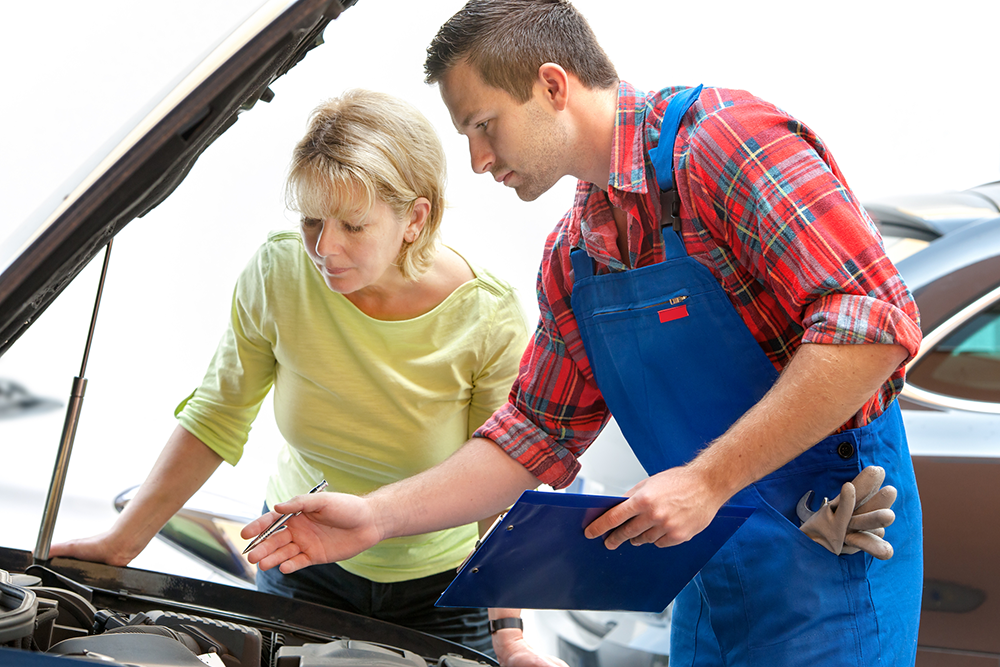Listen for Sounds of Spring...and 'Ping'...and 'Knock, Knock'

Modern vehicles are designed to run quietly and efficiently, so unusual noises usually indicate trouble is brewing.
But what do those noises mean, and how do you know which are the sounds of a potentially serious problem?
Suppose you hear a squeaking or chirping sound when you step on the brakes, but the sound goes away when the pedal is released. That could indicate brake pads need replacement.
Some vehicles have built-in brake wear detectors which squeak or chirp when the pads are worn down. If you hear that, get your brakes inspected by a certified technician.
What if you hear a much louder sound of grinding metal when you step on the brakes? That could indicate brakes pads have worn down to their metal plates and are scraping against other components.
These sounds also indicate a dangerous problem that could prevent your vehicle from stopping when you step on the brake pedal.
Sometimes drivers hear a pinging noise when they press the accelerator pedal. The problem could simply be the type of gasoline used in your vehicle. Check your owner's manual to see if your vehicle requires premium gasoline.
Using a lower octane fuel when your vehicle requires premium can contribute to carbon deposits and create “engine knock,” or ping. In a severe case, the problem may cause loss of power and fuel economy. Eventually, engine knock may cause permanent damage, so using the right type of gas helps extend the life of your vehicle.
What if the engine revs and you hear a banging sound and your car jerks forward when the accelerator is pressed? The automatic transmission may be slipping, caused by a low transmission fluid level or perhaps a leaking gasket. You should have your vehicle inspected as soon as possible before the problem turns into an expensive repair.
Make a point to listen to sounds your vehicle is making. Contact your service advisor anytime you hear unusual noises. When it comes to vehicle problems, a bit of prevention really can avoid an expensive cure.
And always get your vehicle inspected when you hear the following sounds:
- Chirping sounds from the wheel. This may indicates brake pads may need to be replaced.
- Grinding of metal when you step on the brakes. Your vehicle’s brakes pads may have worn down so much they are damaging vehicle rotors or brake drums.
- Pinging noise when the accelerator pedal is pressed. This could be cause by the grade of fuel you are using. Check your owner’s manual to see if your vehicle requires premium gas.
- Engine revving and a sudden banging sound when the accelerator is pressed. The automatic transmission may be slipping. This also could mean your vehicle needs additional transmission fluid and that your vehicle has a leaky seal.
Article by Tony Molla, vice president of communications at the National Institute for Automotive Service Excellence.